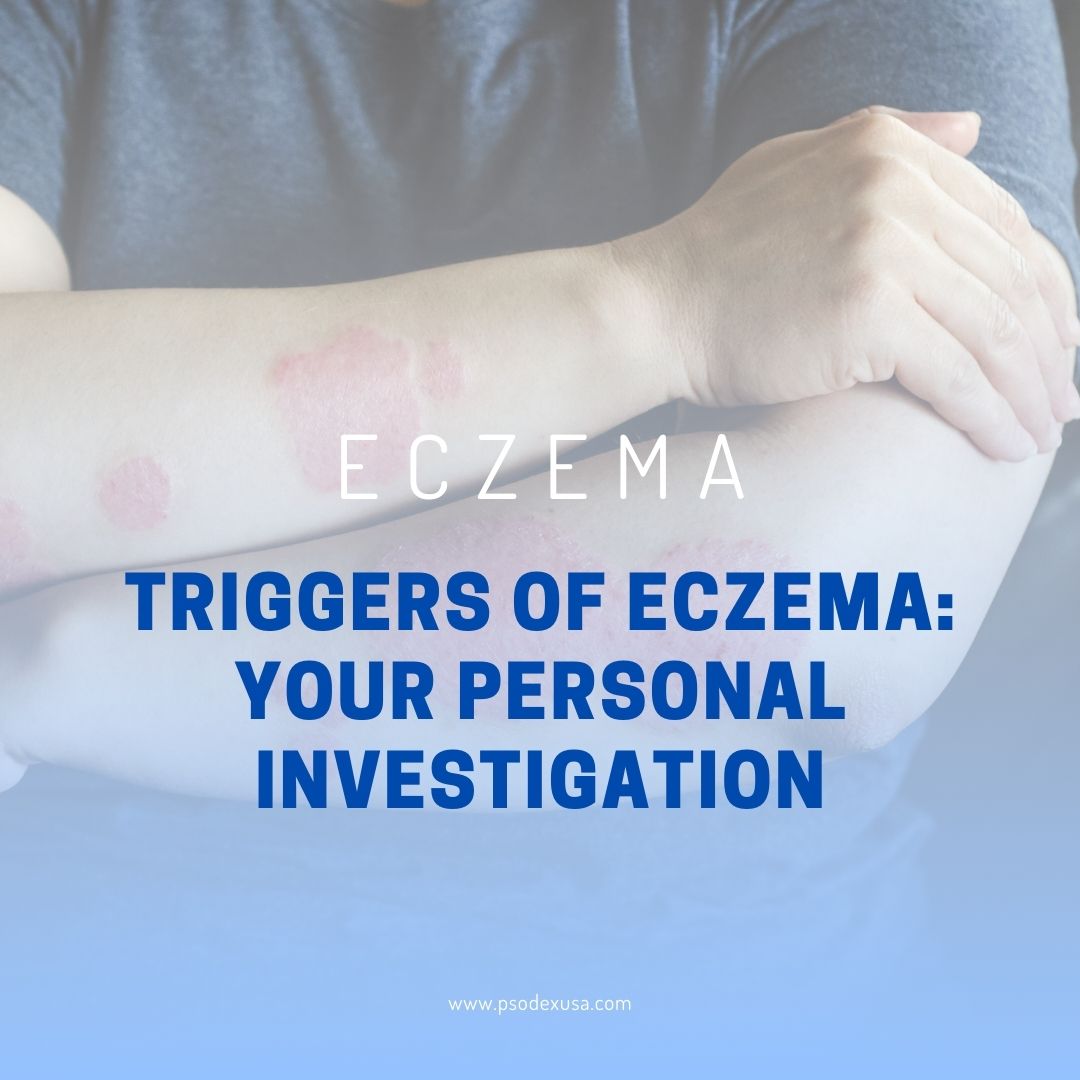Triggers of Eczema: Your Personal Investigation

Eczema, a chronic skin condition that plagues millions of individuals worldwide, can be a relentless adversary. While it may not be entirely preventable, you can significantly improve your quality of life by understanding and avoiding its triggers. This comprehensive guide will walk you through the most common culprits behind eczema flare-ups, providing valuable insights on how to protect your skin and maintain a healthier, happier life.
Irritants: The Skin’s Silent Agitators
Irritants play a significant role in aggravating eczema symptoms. These substances, often found in everyday products, can wreak havoc on sensitive skin. Here’s how to identify and avoid them:
- Soaps and Detergents: Many commercial soaps and detergents contain harsh chemicals and fragrances that can strip the skin of its natural moisture. Opt for gentle, fragrance-free alternatives to cleanse your skin and launder your clothes.
- Fabrics: Certain fabrics, such as wool or synthetics, can chafe against the skin, leading to irritation. Choose soft, breathable materials like cotton to reduce friction and keep your skin comfortable.
The Allergen Menace: Pollen, Pets, and More
Allergens are a common trigger for eczema flare-ups. These microscopic culprits can be found both indoors and outdoors. Learn how to protect your skin against these pesky triggers:
- Pollen: During high pollen seasons, it’s essential to limit your exposure. Keep windows closed, use air purifiers, and shower after spending time outdoors to reduce the risk of pollen-induced flare-ups.
- Pet Dander: If you have furry friends, pet dander can be a major concern. Regular grooming, cleaning, and maintaining a designated pet-free zone in your home can help minimize exposure.
- Dust Mites: These microscopic creatures thrive in bedding and upholstery. Wash your bedding regularly in hot water, use allergen-proof covers, and vacuum your home with a HEPA filter-equipped vacuum cleaner to control dust mites.
Stress: The Mind-Body Connection
Stress is a silent but powerful trigger for eczema. Emotional stress can lead to flare-ups or worsen existing symptoms. To manage stress effectively:
- Relaxation Techniques: Engage in stress-reduction practices like deep breathing, meditation, or yoga. These activities can help calm your mind and soothe your skin.
- Prioritize Self-Care: Make time for activities you enjoy, whether it’s reading, painting, or taking leisurely walks. Self-care can be a powerful stress buster.
Weather: Climate’s Impact on Eczema
Weather can have a significant influence on eczema. Cold, dry conditions can make the skin more prone to irritation. Here’s how to weather the storm:
- Moisturize: Cold air can be drying, so it’s essential to maintain proper skin hydration. Regularly apply a moisturizer, like Psodex Moisturizing Cream, to create a protective barrier against the elements.
- Humidifiers: During the winter months, consider using a humidifier in your home to add moisture to the air and prevent your skin from drying out.
Hormonal Changes: A Skin Rollercoaster
Hormonal changes, such as those occurring during pregnancy, menstruation, or menopause, can influence eczema. Here’s how to navigate this hormonal rollercoaster:
- Awareness: If you notice your eczema symptoms intensifying during hormonal fluctuations, keep a diary to identify patterns and potential triggers. Discuss these findings with your healthcare provider to develop a tailored management plan.
Infections: Tread Carefully
Skin infections can trigger eczema flare-ups, as the immune system responds to the infection. To minimize this risk:
- Maintain Proper Hygiene: Regular handwashing and skin care can help prevent infections. Keep your nails short to reduce the risk of scratching and breaking the skin, which can allow bacteria to enter.
- Prompt Treatment: If you suspect a skin infection, seek medical attention promptly. Early treatment can help prevent the infection from worsening and exacerbating your eczema.
Embracing Eczema Management
Eczema management is an ongoing journey. By becoming familiar with the common triggers and diligently avoiding them, you can take a significant step toward a healthier, happier life. Remember that everyone’s eczema experience is unique, so be patient and willing to adapt your approach as needed. With the right strategies and proper self-care, you can regain control and enjoy a life where eczema is a manageable part of your story, not its central character.
Helpful Links:
National Eczema Association (NEA):https://nationaleczema.org/
American Academy of Dermatology (AAD):https://www.aad.org/
Mayo Clinic:https://www.mayoclinic.org/
WebMD: https://www.webmd.com/
eczema.org: https://eczema.org/
Keywords:
Eczema, Atopic Dermatitis, Eczema Treatment, Eczema Symptoms, Eczema Causes, Eczema Management, Eczema Relief, Eczema Cream, Eczema Home Remedies, Eczema Skin Care, Eczema Rash, Eczema Diet, Eczema Causes and Triggers, Eczema Natural Remedies, Eczema Medications, Eczema in Children, Eczema in Adults, Eczema Prevention, Eczema Flare-Ups, Eczema and Allergies, Eczema Itch Relief, Eczema and Stress, Eczema Support Groups, Eczema Cream Reviews, Best Moisturizers for Eczema, Eczema-friendly Clothing, Eczema and Climate, Eczema Care Tips, Eczema and Skin Hydration, types of eczema, type of eczema, dyshidrotic eczema, eczema symptoms, symptoms of eczema, nummular eczema, eczema treatments, eczema causes, eczema causes, what eczema is, Eczema, Atopic Dermatitis, Eczema Treatment, Eczema Symptoms, Eczema Causes, Eczema Management, Eczema Relief, Eczema Cream, Eczema Home Remedies, Eczema Skin Care, Eczema Rash, Eczema Diet, Eczema Causes and Triggers, Eczema Natural Remedies, Eczema Medications, Eczema in Children, Eczema in Adults, Eczema Prevention, Eczema Flare-Ups, Eczema and Allergies, Eczema Itch Relief, Eczema and Stress, Eczema Support Groups, Eczema Cream Reviews, Best Moisturizers for Eczema, Eczema-friendly Clothing, Eczema and Climate, Eczema Care Tips, Eczema and Skin Hydration
